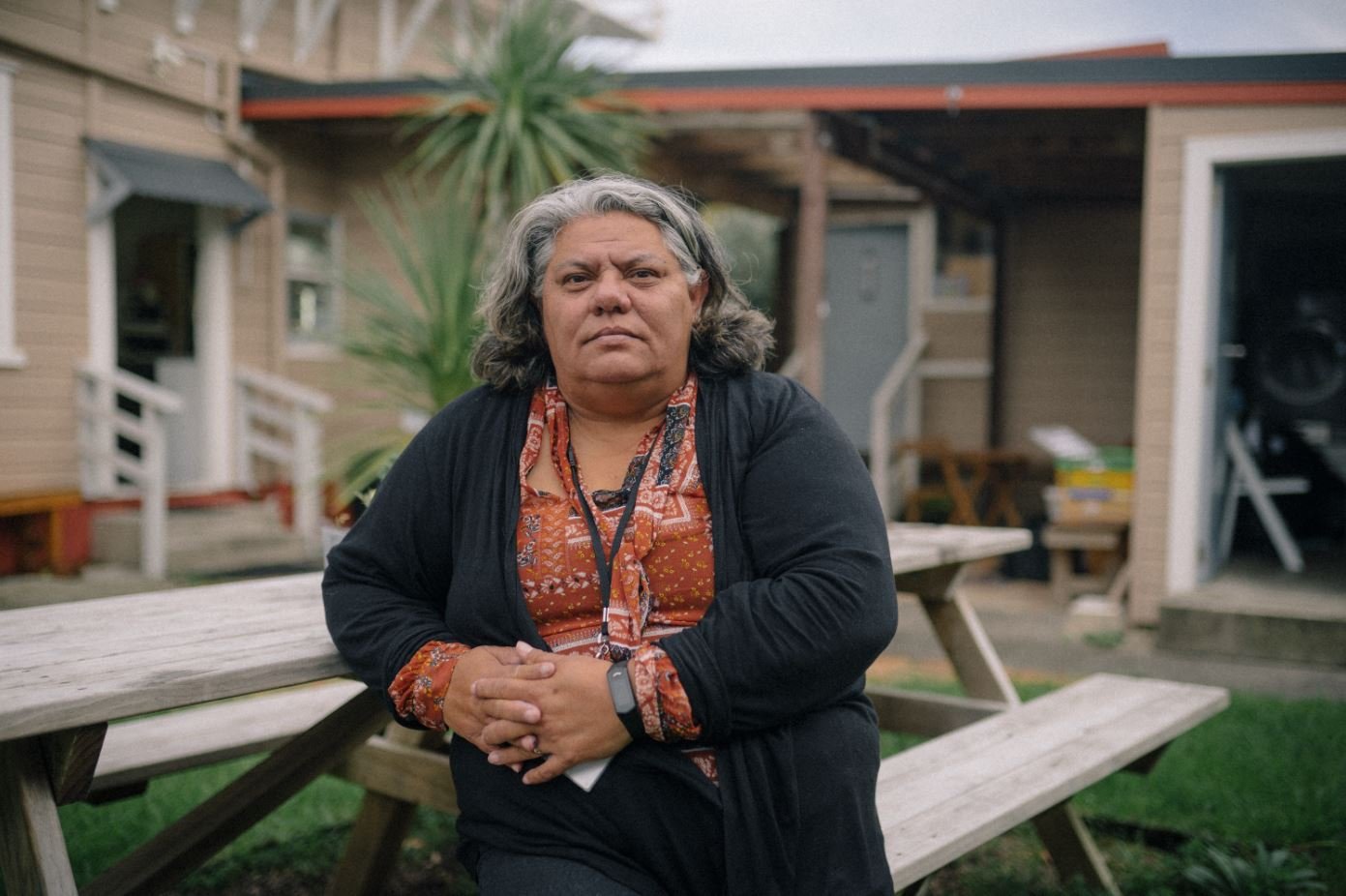By Six
Laura (Ngāti Whātua), has recently been housed by Auckland City Mission in the recent Te Ao Mārama development on Day Street, adjacent to Karangahape Road.
Te Ao Mārama provides newly refurbished apartments for people who need a permanent, safe and comfortable home.
The complex provides 40 studio apartments, 10 one-bedroom suites and 10 two-bedroom units. Every apartment is self-contained, fully furnished and features a lounge, dining area, kitchen, bathroom, laundry, balcony and double glazing.
Laura is also one of our guests of the new K’ Road Chronicle podcast, available on all major platforms.
Laura says she loves it. The apartment. (And probably also the podcast).
“It’s pretty good there,” says Laura. I was so rapt. I was over the moon. The first week I was there I had all my mokos over.”
A home is not just bricks and mortar. It is a place to heal and potentially grow.
Laura is now trying to secure work and is waiting to hear if she has been given a cleaning job at the apartments.
However, not everyone was as excited as Laura about the prospect of social housing in the K’ Road precinct and the Day Street initiative did raise the ire of some local residents and business owners.
K’ Road is a vibrant mix of residents, businesses and nightlife. Getting the balance right is tricky as Jamey Holloway, CEO of the K’ Road Business Association and supporter of the project explains.
Jamey says a lot of the initial concerns residents and business owners might have held were dispelled via good communication from Auckland City Mission who hosted community meetings to address fears and legitimate issues.
“Once they had the right information most people said wow that’s positive,” says Jamey. “I feel pretty positive about it. There’s a good mix of residents including people who are high functioning and looking for work. K’ Road is an ecosystem where business owners know members of the street whānau and they kinda adopt each other.”
Pushback from the community was similar to that expressed when the mission secured residence in the nearby affluent suburb of Ponsonby.
Te Whare Hīnātore provides residential respite for wāhine, breaking negative life cycles.
It operates as a modified therapeutic community where the programme is trauma-informed according to each person’s needs. Each journey is personal and may include psychotherapy, group sessions, parenting or alcohol and/or other drug programmes.
Tui Gallagher (Te Aūpouri), Kaiwhatu (Team Leader) says it is part of the transformation.
Hīnātore translates to twinkle, glow with an unsteady light. As a noun, it means a glimmer of light or also an enlightened or wise person.
“A lot of the wāhine we get into our whare are people who just need to be supported,” says Tui. “It is not a rehab or a refuge. We’re actually just a whare with the kaitiakitanga of hīnātore – to hold our wāhine until they too see the light.”
Tui says addictions are a common obstacle for many residents.
“We have a psychotherapist on site four days a week and an occupational therapist on-site three days a week,” explains Tui. “We’re fortunate to be part of the mission because it means we have access to all their services including social and medical detox. Knowing they are there is great.”
Auckland City Mission works hard to provide understanding to the wider community yet a lot of residents were feeling quite upset about this service operating in their backyard.
Auckland Central Member of Parliament Chlöe Swarbrick says you have to try and empathise with people who feel upset and try to work through where those feelings come from.
“It is very easy to hold a lot of stigma and assumptions and therefore potential for a lot of fear around people who don’t look or sound like you,” says Chlöe.
“Stories are so important because you want people to understand the resilience of our street whānau. You’re talking about dignity. When you provide people with wrap-around support that they need… when you provide people with that sense of home and stability and community of course it turns lives around.” She adds.









